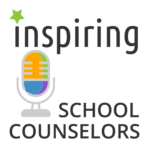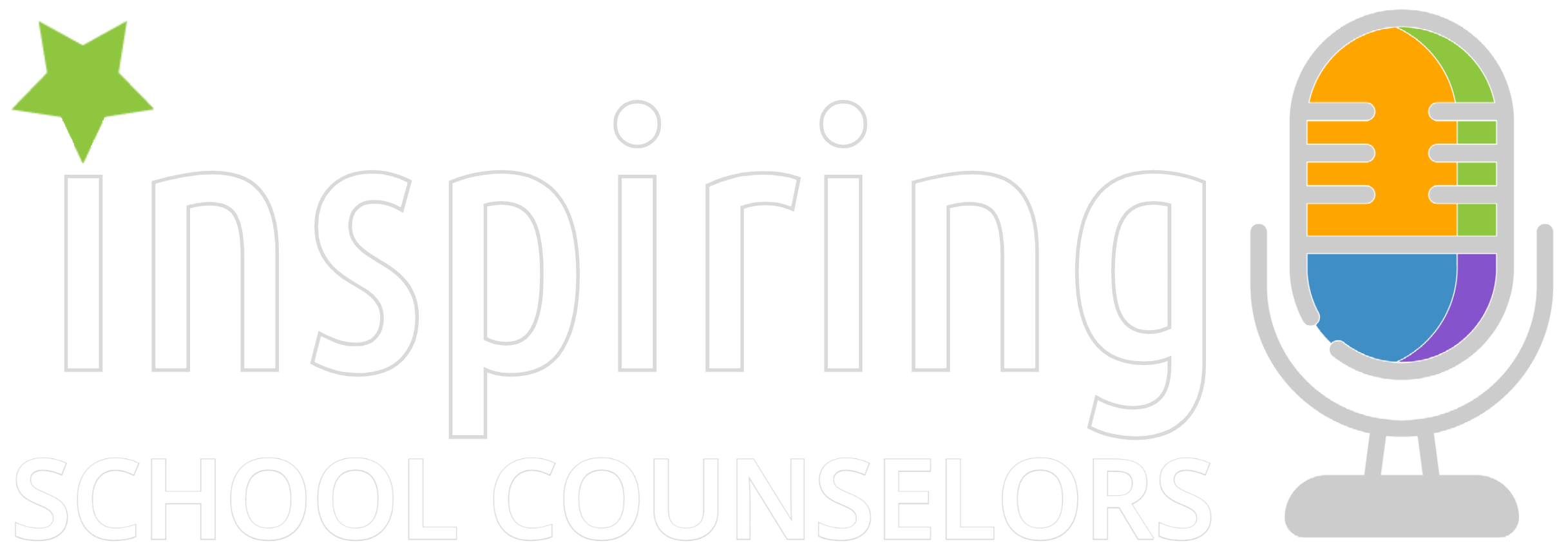Political discourse around social-emotional learning has risen to a fever pitch in some communities around the country. One way to lower the temperature is to do what Stephanie Stewart Bridges does, keep the focus on students.

This Week's Storyteller
Stephanie Bridges has 20 plus years of experience working in higher education community health and now K-12 Education. Her expertise includes a wide range of experiences; however, she is most passionate about integrating mental health and education. Her most current work includes changing school climate through meeting student mental health needs and coordinating multi-tiered systems of support to address those needs.

Share YOUR Story!
 Do you have a touching or funny (or both) story about school counseling? We want to hear it! Drop us a line or record your story with our online Sound Booth.
Do you have a touching or funny (or both) story about school counseling? We want to hear it! Drop us a line or record your story with our online Sound Booth.
If you have questions or need help, let us know!
Subscribe
Encouraging Words for School Counselors is also available on these podcast apps and others. If you can’t find the podcast on your favorite app, let us know and we’ll make sure we get there. If you prefer to listen in your browser, visit https://inspiresuccess.org/podcast every week for a new episode. For new episode notifications and more, follow Inspire Success on Facebook, Instagram, or Twitter.
Transcript
Matt Fleck:
Hello, everyone! Thank you for tuning us in for another week of the Encouraging Words for School Counselors podcast. I am your host Matt Fleck, with Inspire Success, the nonprofit that inspires those who help students succeed.
During this month of February, as we recognize the amazing work of school counselors, it is hard to ignore the fact that across the country, politics and a good deal of misinformation have put some school counseling programs on the defensive, especially about programs related to cultural competency and social-emotional learning.
On the positive side, though, many school counselors have found ways to deal with these challenges. Stephanie Stewart Bridges is one of them. Stephanie is the Director of African American Student and Parent Services at the South Bend Community School Corporation in northern Indiana. She works with the district’s School Climate Transformation Grant to change the school climate by putting systems in place to address not only the needs of students, but also equipping instructors and staff with ways to do that. And much of this work is examining our own mindsets around these issues.
Stephanie Stewart Bridges:
When we think about mental health, we typically think about mental health from the standpoint of it’s for the kids who have behavior issues. But actually, if we look at the integrated system of having mental health as a universal practice for all kids, then we create an opportunity for everybody to start at the same focus point. And so that’s what a lot of the work with the grant has been, is creating a common language around how we have conversations around behaviors and interventions, and then having some intentional way that we kind of, um, nominate students who do have those individual needs in a way that allows us to look at their behavior and the data around their behavior, so that we can have a clear understanding about what interventions have the best impact.
Matt:
Part of Stephanie’s work involves a series of family and community engagement efforts including the Marvelous Summer and Marvelous After School programs – which play off the Marvel Comics concept of being your own superhero. Though Stephanie just started these programs last year, teachers and counselors are already seeing measurable changes in student behavior.
Stephanie:
I just got out of a meeting where two of our kids who really have been a challenge, you know. One little girl told me she had anger issues in the summer. She’s somebody who we’ve had to correct every day and redirect her behavior in a positive way. She comes by my office every day when she gets here and says, “Hey, I’m going to have a good day today.” And she really has turned it around. She is one of our classroom leaders. She’s leading in her classroom at school. So we know that the type of intentional validation that we provide our kids in the afterschool program is working. And so that’s why culturally responsive and social emotional learning that comes out in different ways is important.
Matt:
Maybe with all of the hype and misinformation around social emotional learning these days our message should be more basic, that as school counselors our work simply aims to help all students become good, wholesome members of our community. And as Stephanie says perhaps we share with others that our social emotional learning programs are actually MORE than just programs.
Stephanie:
We can have a curriculum, but how we treat kids to treat each other and how we build this pathway for them to be good, wholesome members of our community – it works.
Matt:
As school counselors, Stephanie says it is critical that we concentrate on all kids. It’s easy to pay a lot of attention to students who scream the loudest – sometimes literally – while overlooking the students who don’t grab our attention.
Stephanie:
Particularly in our communities of color, the narrative that we have around mental health is not the same. If you look at it from a lens of privilege, you’ll miss it. You’ll think that it’s just something that they don’t want, they don’t understand, or they don’t know how. But really, you have to create that common language and that relationship in a way that makes it meaningful for them, not in a way to be deceitful, but how do you bridge that gap? And a lot of times we have to take off our lens of privilege, of family, and all of the resources that we have been blessed with to be able to create an opportunity for someone to understand something different. So a lot of times that behavior that you’re looking at in the classroom or in your hallways, or, you know, at lunchtime is really not related to that student who just came to school that day to be bad. It’s really kind of a story about something else. Like Dr. Anda says, it’s not what’s wrong with you, but what happened to you? And when we create that pathway, by looking at that a little closer with our hearts and not necessarily with what our minds are telling us, we can create an opportunity for someone to get so much more.
Matt:
Thanks for sharing your work with us Stephanie, we appreciate all you do and all of the work of our unsung school counselor superheroes.
To share a story of your school counseling experiences with us, or to subscribe to the Encouraging Words for School Counselors podcast, check out our website at inspiresuccess.org/podcast.
That’s all for this week. Until next time, stay warm, stay healthy, and stay super.
